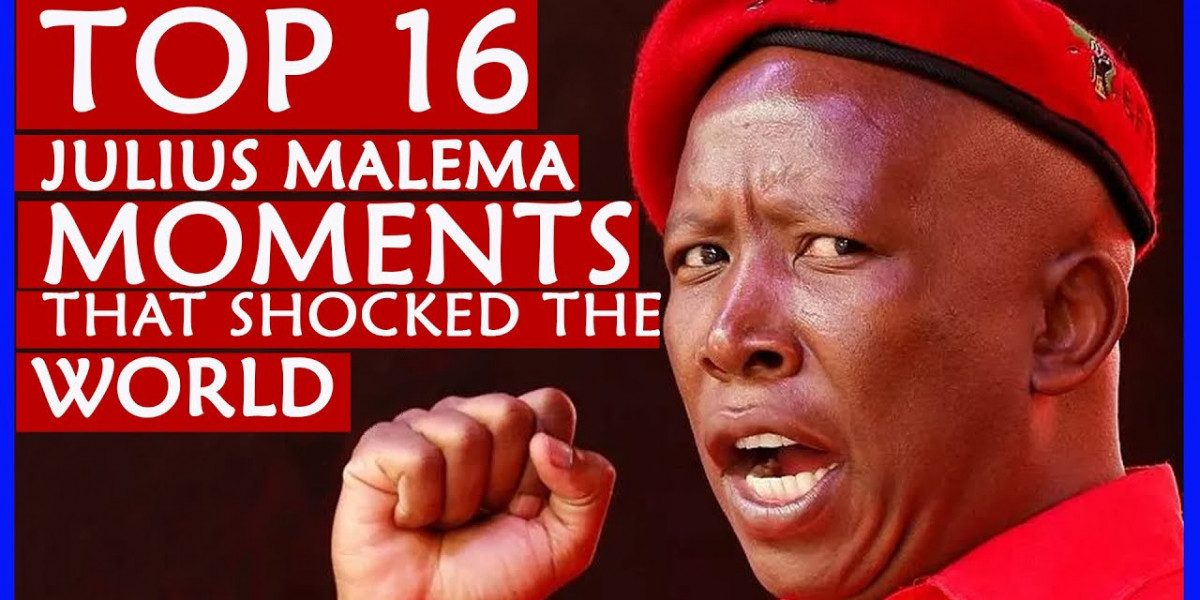Introduction: Julius Malema, the charismatic and controversial South African politician, has never been one to shy away from the spotlight. Throughout his career, Malema has made headlines with his fiery rhetoric, bold political stances, and unapologetic demeanor. From his early days in the African National Congress Youth League (ANCYL) to his leadership of the Economic Freedom Fighters (EFF), Malema has been a polarizing figure whose actions have captivated audiences around the globe. Here, we take a look at 16 moments where Julius Malema shocked the world with his words and actions.
Expulsion from ANC Youth League: In 2012, Malema was expelled from the ANC Youth League for sowing division within the party and bringing it into disrepute. His ousting marked a dramatic fall from grace for the once-prominent youth leader.
Singing "Kill the Boer": Malema sparked controversy in 2010 when he was filmed singing "Dubula iBhunu" (Kill the Boer), a struggle song that many viewed as hate speech. The incident reignited debates about freedom of expression and racial tensions in South Africa.
Nationalization of Mines: Malema's calls for the nationalization of South Africa's mines have been a cornerstone of his political platform. His advocacy for economic reform has garnered both support and criticism from various sectors of society.
Land Expropriation Without Compensation: Malema's push for land expropriation without compensation has been a contentious issue in South African politics. His calls for radical land reform have ignited debates about property rights and restitution for historical injustices.
Malema vs. Jacob Zuma: Malema's public clashes with former South African President Jacob Zuma have been legendary. From criticizing Zuma's leadership style to calling for his resignation, Malema's confrontations with the ruling party have made headlines around the world.
Marikana Massacre: Following the tragic Marikana massacre in 2012, Malema emerged as a vocal critic of the government's handling of the situation. His impassioned speeches and calls for justice resonated with many South Africans who were outraged by the violence.
EFF Formation: In 2013, Malema founded the Economic Freedom Fighters (EFF), a far-left political party that advocates for radical economic transformation. The formation of the EFF signaled a seismic shift in South African politics and introduced a new force onto the political landscape.
"Pay Back the Money": Malema famously heckled President Jacob Zuma in parliament with the demand to "pay back the money," referring to public funds spent on upgrades to Zuma's private residence in Nkandla. The incident became a symbol of Malema's combative style of politics.
Land Grabbing: Malema's controversial statements encouraging EFF supporters to occupy land have sparked fears of lawlessness and instability. His calls for direct action have raised concerns about the rule of law and property rights in South Africa.
Court Battles: Malema has been no stranger to legal troubles, facing numerous charges ranging from corruption to incitement to violence. His courtroom battles have further cemented his reputation as a polarizing figure in South African politics.
White Monopoly Capital: Malema's rhetoric against "white monopoly capital" has drawn criticism for its racial undertones. His demonization of white-owned businesses and calls for economic redistribution have fueled debates about race and class in post-apartheid South Africa.
International Relations: Malema's diplomatic gaffes and controversial statements on foreign policy have raised eyebrows both domestically and abroad. His remarks on issues ranging from Zimbabwe to Israel have tested South Africa's diplomatic relations with other countries.
Public Spats: Malema's penchant for public spats and verbal jousting with political opponents has become a hallmark of his persona. Whether it's in parliament or on social media, Malema is never one to back down from a verbal altercation.
Youth Mobilization: Malema's ability to mobilize young people and galvanize support for his political causes has been a defining feature of his leadership. His appeal to South Africa's disenfranchised youth has made him a formidable force in national politics.
Radical Economic Transformation: Malema's calls for radical economic transformation have resonated with many South Africans disillusioned with the slow pace of change since the end of apartheid. His promises to dismantle economic inequality have struck a chord with marginalized communities.
Legacy and Future: As Julius Malema continues to be a dominant figure in South African politics, his legacy remains a subject of debate and controversy. Whether he is viewed as a champion of the poor or a dangerous demagogue, there is no denying the indelible mark he has left on the political landscape of South Africa.
Conclusion: Julius Malema's political career has been defined by a series of shocking moments that have captivated the world's attention. From his expulsion from the ANC Youth League to his formation of the Economic Freedom Fighters, Malema has consistently pushed the boundaries of South African politics and challenged the status quo. Love him or loathe him, Julius Malema is undeniably one of the most influential and polarizing figures in contemporary African politics.

